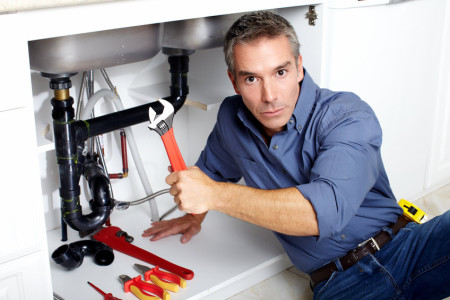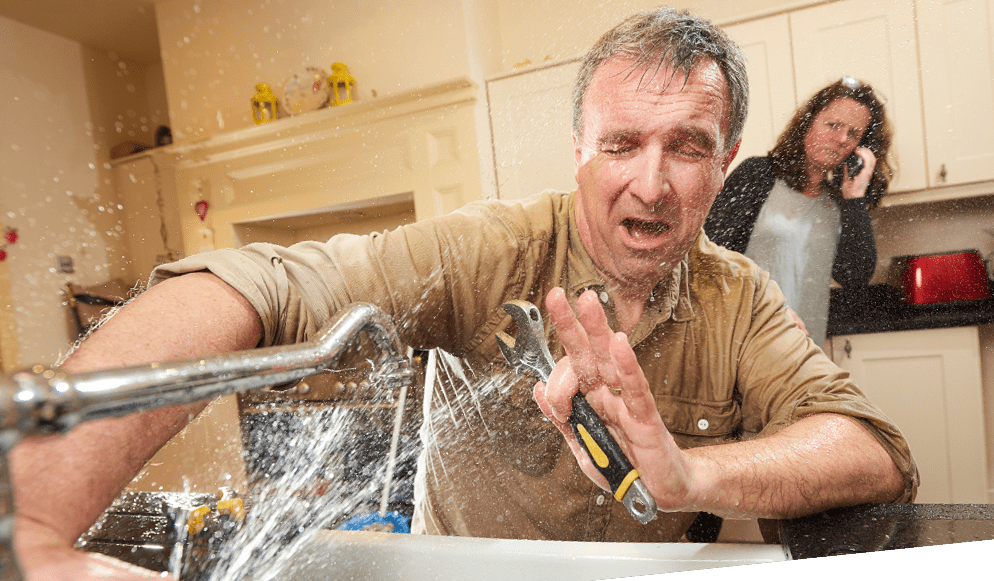Emergency Tips: What to Do Until Support Arrives
Emergency Tips: What to Do Until Support Arrives
Blog Article
We've noticed this post relating to What to Do During a Plumbing Emergency down the page on the internet and thought it made sense to quickly share it with you in this article.

Pipes emergency situations can strike at any moment, triggering tension and potential damages to your home. Whether it's a ruptured pipeline, a blocked drain, or a leaky tap, understanding how to take care of the circumstance up until a professional plumber gets here can conserve you from additional problems. This article supplies necessary emergency pipes tips to aid you minimize damages and restore control during a pipes dilemma.
Shut off the Water Supply
The first step in any kind of plumbing emergency is to shut down the water system. For localized issues, such as a dripping tap or toilet, switch off the shutoff near the fixture. When it comes to a significant leak or ruptured pipeline, locate your home's major water shut-off shutoff and turn it off quickly. Understanding the location of these shutoffs beforehand can conserve useful time throughout an emergency situation.
Address Small Leakages with Short-term Fixes
Little leaks can promptly end up being significant issues if left unchecked. Make use of these short-term fixes up until professional aid arrives:
While these solutions aren't long-term, they can help lessen water loss and damage.
Unclog Drains Pipes Safely
A clogged drainpipe can be an aggravating and unpleasant issue. Below's how to tackle it:
If these approaches don't function, stay clear of using too much pressure, as it may get worse the obstruction.
Take Care Of Overflowing Toilets
An overflowing toilet can trigger prompt disorder. Here's what you need to do:
Shut Off Your Water Heater
In certain emergencies, such as a ruptured pipe, it's smart to turn off your hot water heater. This stops overheating or damages to the system when water quits flowing. Turn off the power supply to the water heater (electric or gas) and allow it cool down to prevent possible dangers.
Momentarily Stop a Burst Pipe
A burst pipe can bring about significant water damages in mins. To minimize the concern:
Call a professional plumbing promptly to deal with the issue permanently.
Deal With Frozen Pipeline Thoroughly
In colder climates, icy pipelines are an usual emergency situation. If you believe an icy pipeline:
Avoid Additional Damage
Taking quick action to reduce damage can save you time and money in the long run. Below's just how:
. Have an Emergency Situation Pipes Kit
Prepare a basic pipes emergency situation set to handle small concerns properly. Your set ought to include:
Having these tools accessible can make a considerable difference in your ability to take care of emergencies.
Know When to Call a Professional.
While quick fixes can assist briefly, certain pipes problems require prompt professional focus. Call a plumbing professional if:.
Promptly calling a professional makes sure the issue is settled properly and protects against further difficulties.
Conclusion.
Pipes emergencies can be frustrating, but with the ideal knowledge and devices, you can take care of the circumstance properly up until aid arrives. By switching off the water supply, attending to tiny leakages, and using momentary solutions, you can reduce damages and maintain your home safe. Bear in mind, these suggestions are momentary solutions; always get in touch with a licensed plumbing to handle the source of the trouble. Preparation and quick reasoning are your ideal allies in any plumbing emergency situation.
8 Helpful Tips for Managing Plumbing Emergencies at Home
If your plumbing system hasn’t failed once, wait for it because almost everyone has a story to tell. Sometimes, it could be simple emergencies such as a leaking pipe, a blocked cistern, or even a big burst pipe. In situations like this, you need to have some handy tips to save you some money and from possible damages.
Take care of minor issues early.
Sometimes, you could have avoided an emergency by taking proactive measures while it was still early. Some major plumbing emergencies can be a result of an ignored minor issue. We recommend that you have items like plumbing tapes and other related items. A plumbing tape can allow you to manage minor leaks before the plumber arrives.
Cut off the water supply.
This tip is essential in almost any type of leakage problem. For problems like minor leakages in the toilet or kitchen, turn off the supply that takes water to the affected pipes. If the leakage is a major pipe, you must shut off the supply valve to the entire building. This will help you avoid flooding your home and neighbors if you share a flat.
Know your plumbing system
Folks typically move into a new apartment without understanding the water supply around the building. This can prove disastrous if a water emergency arises and the plumber is far away. The previous tip will prove useless if you don’t practice this one. More importantly, know where your water shut-off valve is located – you’ll need that knowledge to prevent potential home floods.
Have some common handy tools
There are lots of plumbing emergencies that you can handle without hiring a plumber. That’s why you must keep some tools available always. Some tools that you can use to fix simple plumbing emergencies easily include plumbing tapes, screwdrivers, thread seal tapes, plungers, pliers, tape measures, and rubber gloves.
Insulate your pipes from cold
You’ll save yourself from many plumbing expenses if you protect your water pipes from the cold. This is because of the harmful effects that cold weather can have on your pipes. During winter, your pipes can burst from being overly expected to freezing temperatures. So, make sure insulators are there to keep the pipes working correctly.
Avoid practices that will clog your toilet.
Many people indulge in practices that can damage the plumbing system of the entire building. One of these is when they use their toilet to dispose-off garbage. They flush all kinds of things, such as paper towels, bandages, hairs, female sanitary products, etc., down the toilet. This will block your toilet in the long run, incurring unnecessary expenditures. Dump such waste in the trash instead.
Check your dials regularly.
Sometimes, there could be leakages in your home without noticing them in time. So, constantly monitor your water meter dial. If the dial is reading when there is nobody using water, this is an indicator that there is leaking. Check for leaks immediately. Call a plumber as soon as possible if you can’t find any.
https://www.constructionplacements.com/8-helpful-tips-for-managing-plumbing-emergencies-at-home/

As an avid reader about Plumbing Emergencies: Tips on What To Do Before, I assumed sharing that excerpt was essential. Appreciated our write up? Please quickly share it. Let somebody else locate it. I value your readership.
Click Here Report this page